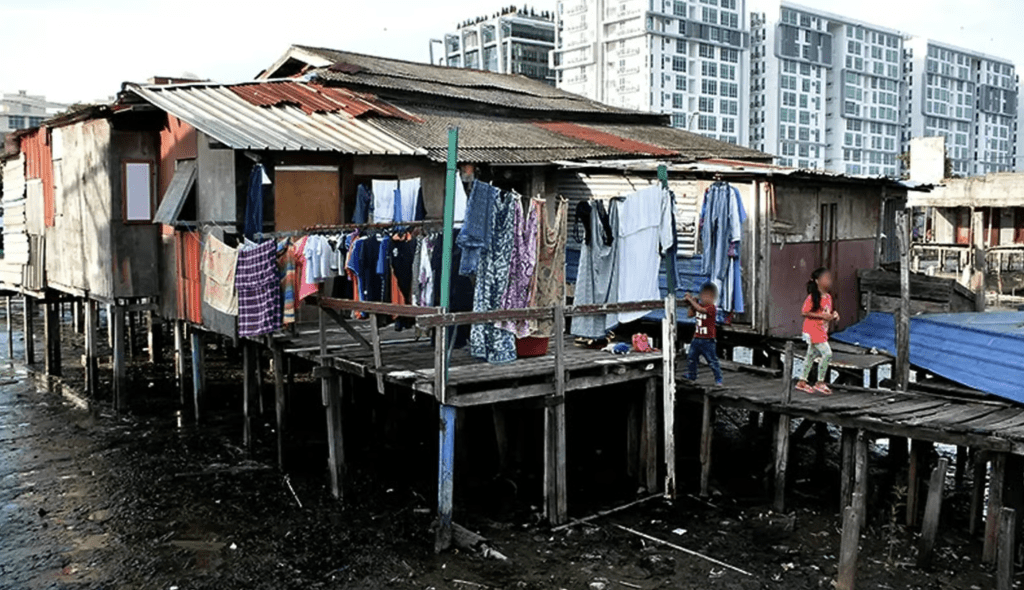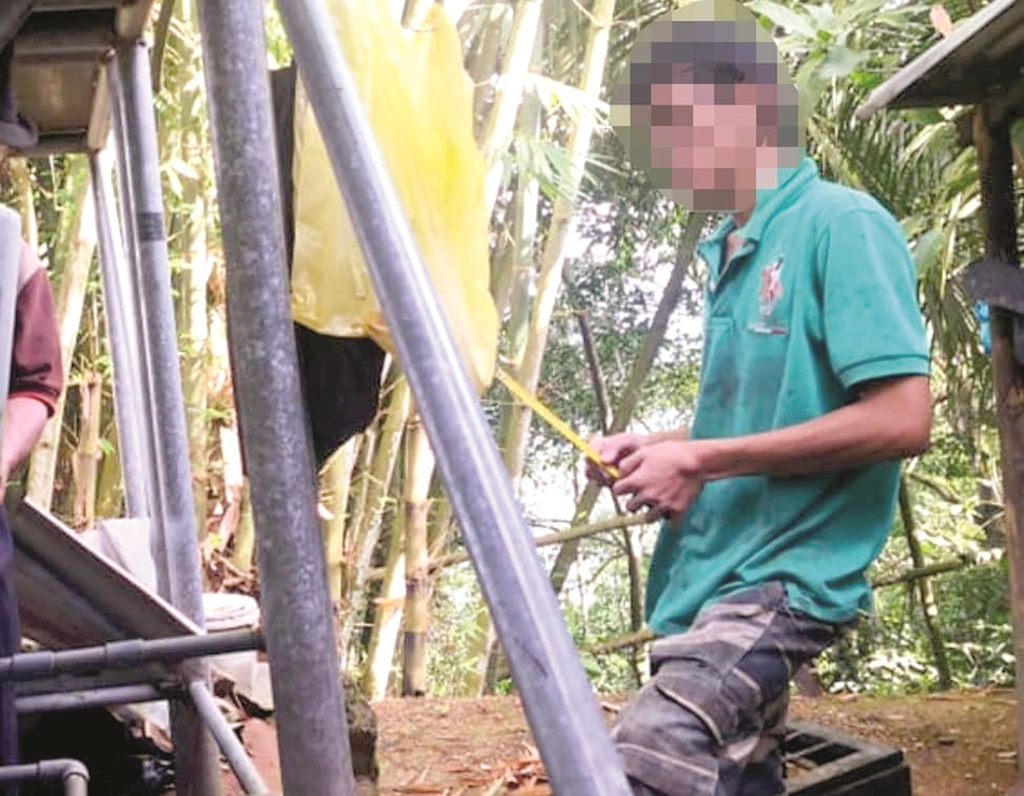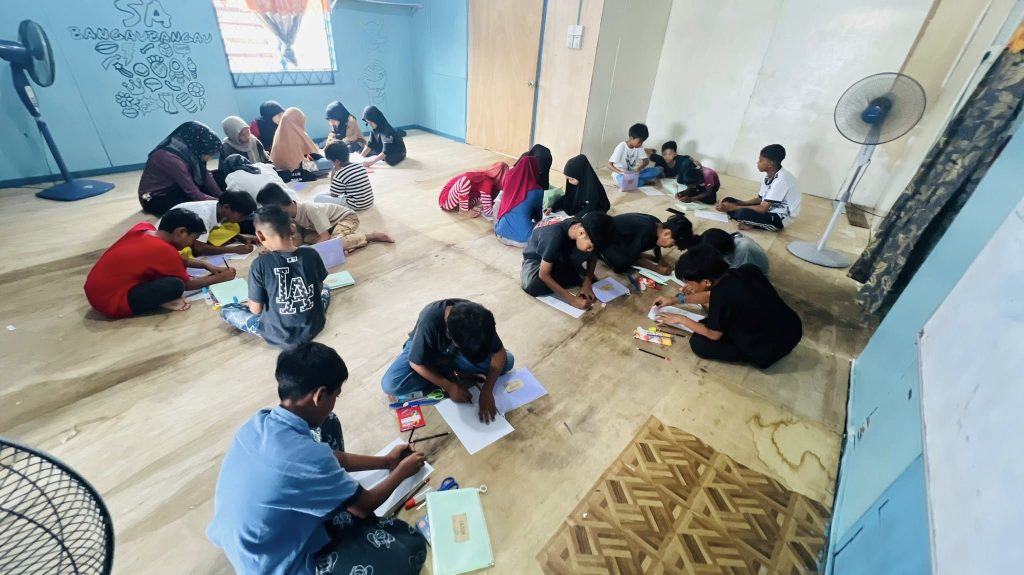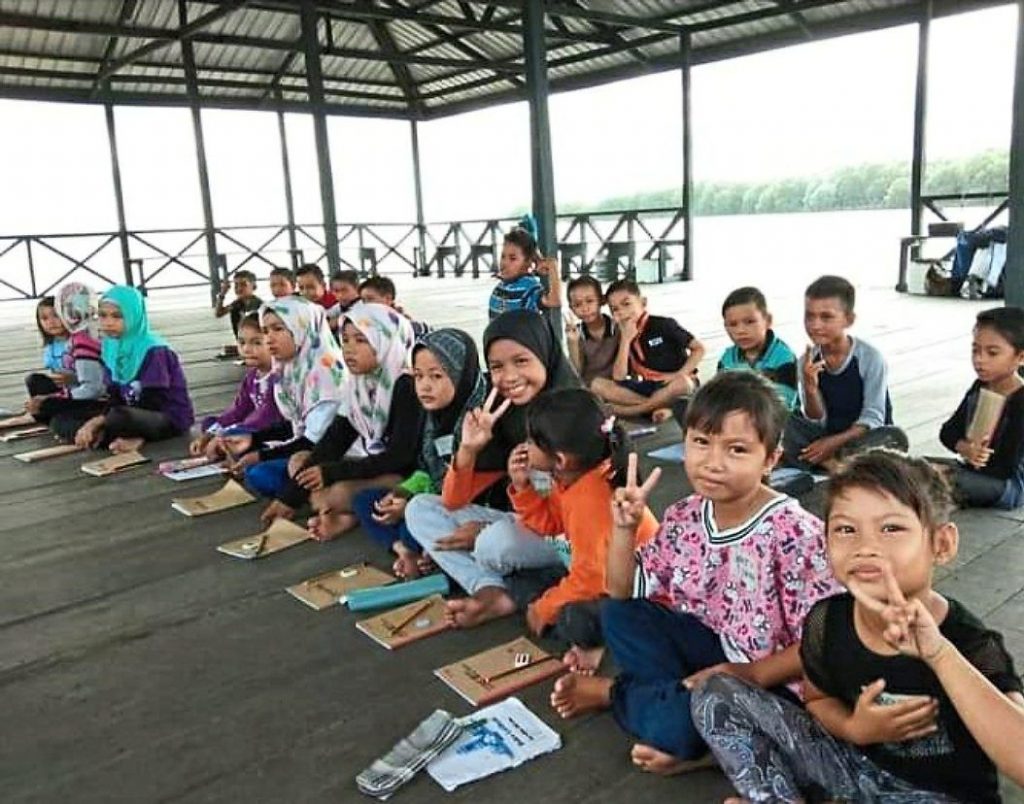“You are not locals. You don’t belong here. You can be displaced at any time…”
These words mark the daily reality for those born without documents in Malaysia, especially in Sabah. Today, over a million non-Malaysians live in Sabah, including undocumented and stateless individuals[1].
Many of them were born here, and their families have lived here for generations. And yet, they exist like ghosts with a heartbeat: alive but unrecognised, unseen, and unheard – ignored by both government and society.
Without proof of their existence on paper, they’re denied even the most basic of human rights. Squatting? Of course, how else can they live when they can’t legally rent or own a home? But this? This is only the first crack in a shattered life.
In this article, Wiki Impact dives deeper into the struggles of Sabah’s stateless communities through the eyes of Suara Mahasiswa Universiti Malaysia Sabah (UMS), a student activism group working closely with Sekolah Alternatif, an education initiative founded in 2015 by Borneo Komrad to combat illiteracy among undocumented children[2].
Urban Settlers, Misread by the System
According to Muhamad Fadhil bin Muhamad Kasim, President of Suara Mahasiswa UMS, stateless individuals and squatters are often lumped together with undocumented migrants such as PATI (Pendatang Asing Tanpa Izin).
This oversimplified classification has existed since independence, with no major legal or policy reforms. As a result, many who were born and raised in Malaysia, sometimes for generations, are still labelled as non-citizens or illegal immigrants.
There is no clear definition used by authorities when it comes to classifying communities, apart from separating them into two broad categories: citizens and non-citizens. – Muhamad Fadhil, President of Suara Mahasiswa UMS
NGOs and activist groups, however, use a different lens. They refer to these communities as “urban settlers” (peneroka bandar), people who have settled in certain areas out of economic necessity, living close to workplaces and contributing meaningfully to local development.
One such example is the community in Teluk Layang, located just 100 metres from UMS and near several key government offices.
Fadhil shared that many families in these settlements have no documentation from Malaysia or any other country. Some have lived in Sabah since the late 1970s, working in low-income jobs – labourers, cleaners, garbage collectors, forming the backbone of the local economy, especially in Sepanggar.

There’s even a cemetery with gravestones dating back to the 1970s… and there’s this huge mango tree or at least I think it’s a mango tree – that’s over 20 years old and still growing today. – Muhamad Fadhil, President of Suara Mahasiswa UMS
Bracing for Bulldozers
In 2024, districts in Sabah with large squatter populations were instructed to significantly reduce their numbers by the end of 2025.
Deputy Chief Minister II, Datuk Seri Dr Joachim Gunsalam, revealed that a state-level committee had identified 285 squatter colonies across Sabah. Only three districts – Ranau, Kota Belud, and Tuaran- reported having none.
I want to see more districts or local authorities that have a zero-squatter presence. – Datuk Seri Dr Joachim Gunsalam[3]
The announcement sparked concern among NGOs and activists, who criticised the policy as inhumane and lacking compassion.

Suara Mahasiswa UMS condemned the move, calling the GRS-led government’s approach “cruel and devoid of humanity.” They highlighted that undocumented communities already face constant threats, exploited by industries and criminalised by the system.
They also noted that the policy feeds into the rising “Sabah for Sabahans” sentiment, which often paints outsiders, including Peninsular Malaysians and foreign nationals, as unwelcome.
One of the government’s tactics is to demolish squatter settlements inhabited mainly by non-citizens to reinforce this narrative. – Muhamad Fadhil, President of Suara Mahasiswa UMS
The alternative school in Teluk Layang, along with the village itself, has also received demolition threats simply because the area is classified as a squatter settlement. Residents were given no clear explanation of future plans – only the instruction:
“We have orders to demolish structures in this village because it’s on government land without permission or legal status.”
Other areas, including Penampang, Inanam, and Sepanggar, have already faced similar demolitions.
Labourers Of The Land, Strangers To The State
Several harsh realities allow statelessness to persist in Sabah, and one of them is deeply uncomfortable. Stateless individuals are quietly in demand. Certain industries rely heavily on low-wage labour, and without documentation, these workers are easily exploited.
Fadhil explained that sectors dependent on large workforces, factories, construction, and machine operation often hire stateless individuals because they can be paid below minimum wage. With no legal protection, they are vulnerable; anyone who protests can be swiftly replaced by others desperate for work.
Without access to labour rights, EPF, or SOCSO, exploitation continues unchecked – reinforcing the very system that keeps statelessness alive.

A lack of legal awareness also makes it difficult for these communities to secure documentation. To address this, Suara Mahasiswa UMS and activists from Borneo Komrad help villagers, including parents of children in alternative schools, navigate documentation processes.
But awareness alone isn’t the issue. Fear shapes the daily lives of these communities. Fadhil noted that authorities often label them as “outsiders,” and over time, many internalise this stigma. It becomes easier to accept life in the shadows than risk punishment for seeking recognition.
This fear is constantly reinforced through raids, arrests, and demolitions, often portrayed by authorities and the media as crackdowns on illegal settlements.
These actions are used to send a message: You are not locals. You don’t belong here. You can be displaced at any time. Eventually, this fear spreads… They live with no courage to resist and feel they have no other option but to continue life as it is. – Muhamad Fadhil, President of Suara Mahasiswa UMS
Suara Mahasiswa UMS also argues that the government has failed to structurally address the issue. While research has been conducted, efforts frequently stall or remain incomplete.
Fadhil stressed that if this is truly a national concern, the government must act decisively creating proper frameworks, taking responsibility, and ensuring the stateless have access to justice and a real future, not the destruction of their homes and hopes.
Teaching Hope, Defending Dignity
It has been nearly a decade since Sekolah Alternatif was founded by Borneo Komrad in 2015. Today, three schools operate across Sabah in Kota Kinabalu, Tawau, and Semporna. UMS student volunteers regularly support lessons at the Teluk Layang branch.
But this school is not a conventional classroom. It is a community learning hub, a safe, welcoming space where education blends with play, dignity, and purpose. The school operates every Tuesday to Thursday, from 9am to 12pm. Classes are run by community teachers and supported by UMS students. Children are grouped according to literacy levels:
- Usman Awang – Pre-literacy
- Keris Mas – Reading & Writing
- A. Samad Said – Post-literacy: health, life skills, civic awareness
Volunteers also run weekend sessions, and over time, the impact has been transformative.

Nur Fatimah Al-Haura binti Rohaizad, Treasurer of Suara Mahasiswa UMS, said the school’s purpose goes far beyond basic reading and writing. It restores dignity and nurtures identity, something many children lacked from the start.
They didn’t wear proper clothes. Hygiene practices were poor. Basic civic awareness was almost nonexistent… children relieving themselves anywhere, with no understanding of cleanliness or public decency. – Nur Fatimah Al-Haura binti Rohaizad, Treasurer of Suara Mahasiswa UMS
With consistent engagement and trust-building, the change has been remarkable. Children now understand hygiene, take pride in keeping their surroundings clean, and some even dress confidently — with girls enjoying makeup and fashion like other teens. Families have shown initiative, too, building water tanks and improving their homes.
Sekolah Alternatif offers more than academic literacy. It fosters civic values, confidence, and a sense of belonging. And it directly challenges harmful stereotypes that paint undocumented communities as dangerous. What Suara Mahasiswa sees instead is a community deprived of guidance, and once given the chance, they flourish.
Written by Noor Ainun Jariah Noor Harun


